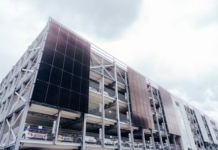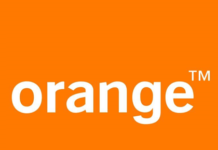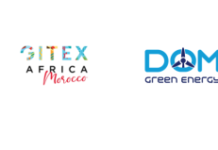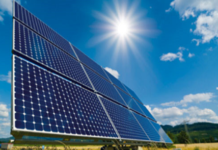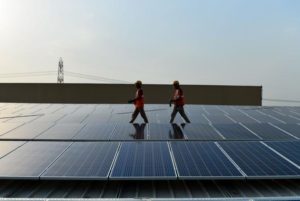
New Delhi: Solar power tariffs in India may decline further as a result of the US withdrawal from the Paris climate deal affected by President Donald Trump.
According to several developers, manufacturers and analysts, Chinese manufacturers may further cut their solar module prices to drive sales in India because they may not have a significant US market left any longer. Modules account for nearly 60% of a solar power project’s total cost and their prices fell by about 26% in 2016 alone.
Of China’s solar module manufacturing capacity, estimated to be around 70 gigawatts (GW) per year, the major markets are the US, India and China itself. With green energy activity expected to slow down in the US, and the Chinese solar power generation stimulus petering off, China’s solar equipment makers may adopt a more competitive stance on pricing to drive demand.
“In order to support demand, China stepped in and launched a major programme in 2014-15 due to which it added a record 35GW of capacity. This is expected to come down this year. There will be a huge capacity that Chinese manufacturers will have to deal with this year. It will further drive down prices with solar power tariffs in India expected to go below the Rs2 per unit mark,” said the chief executive of a solar power firm which participated in the recent solar auction rounds in India.
“In case of successful exit from the accord, we may see Chinese manufacturers play a major role in the global solar industry which may not be good for India’s energy security,” said Gyanesh Chaudhary, managing director and chief executive officer, Vikram Solar Pvt. Ltd.
Most solar power developers in India have been sourcing solar modules and equipment from countries such as China where they are cheaper.
India’s installed solar power generation capacity has risen over fourfold to 12.2GW from 2.6GW as of 26 May 2014.
However, some believe that there will not be an immediate impact.
“Nobody had predicted a tariff of Rs2.4 per unit six months back. But realistically speaking, Rs2.4 per unit is really challenging and for another one year I don’t see much reduction in tariff. Also, because of GST (goods and services tax), overall the capex cost will increase and due to which there will be a 20-30 paise rise in price also,” said Sunil Rathi, director, Waaree Energies Ltd, a solar module manufacturer. India recorded its lowest solar power tariff of Rs2.44 per unit in May.
“US demand for solar is not expected to change significantly as key US states have declared openly to continue their support to renewable energy. However, reduction in Chinese module prices is expected to continue till the manufacturers are able to stretch their margins,” said Kulamani Biswal, director, finance at NTPC Ltd, India’s largest power generation utility. NTPC plans to be present across the green energy value chain and is evaluating a plan to set up a solar module facility.
Major Chinese solar module manufacturers include Jinko Solar, JA Solar Holdings, ET Solar, Hanwha Group, Chint Solar, GCL-Poly Energy Holdings Ltd and Trina Solar Ltd.
Experts say a more competitive solar module market will emerge for India following the US’s changed stand on green energy. “India’s actions on renewable energy is independent of the US; it is market driven and private- sector led. In fact, it improves the scenario for India as availability of funds and technology increases, prices are expected to fall further,” said Sambitosh Mohapatra, partner, power and utilities at PwC India.
“With a lower global demand of solar capacity, cheaper capital and equipment will flow to the Indian renewable energy sector,” added Debasish Mishra, partner, Deloitte Touche Tohmatsu India Llp.
This may further impact the domestic manufacturers who have approached the government over the dumping of Chinese modules.
Queries emailed to Jinko Solar, JA Solar Holdings, ET Solar, Hanwha Group, Chint Solar, GCL-Poly Energy Holdings Ltd and Trina Solar Ltd remained unanswered.
According to consulting firm Bridge to India, the Indian solar module market is dominated by Trina Solar (25.7% market share), Hanwha (10.5%) and Risen (7.6%), with domestic manufacturers’ accounting for only 10.6% market share. Waaree Energies’ Rathi stressed that India needs an anti-dumping policy now.
Source: www.livemint.com




